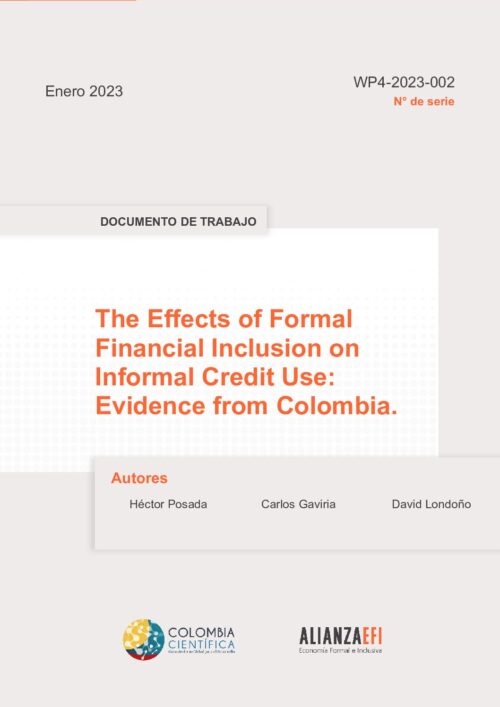It is well known that formal credit can improve household’s wellbeing in developing countries, however, its relationship to informal credit as a substitute or complement is uncertain. This study aims to estimate the causal effect of formal credit on the use of informal credit sources using a Regression Discontinuity Designs which exploits credit allocation rules of formal institutions. We use financial and socioeconomic information directly provided by households trough the Encuesta Longitudinal de Hogares Colombianos (ELCA) survey. With this information we obtain a credit score and estimate a decision threshold, which together replicates the credit allocation rules of formal institutions. Our results show that formal credit reduces informal credit use. Our results also show that formal credit increases the probability of living in a formal housing and owing a motorcycle.
Autores:
- Carlos Gaviria
- David Londoño Arenas
- Héctor M. Posada
Palabras clave:
- Credit Access
- Financial inclusion
- Informal Credit
- RDD
Categorías:
- Proyecto 4
- Documentos de trabajo
